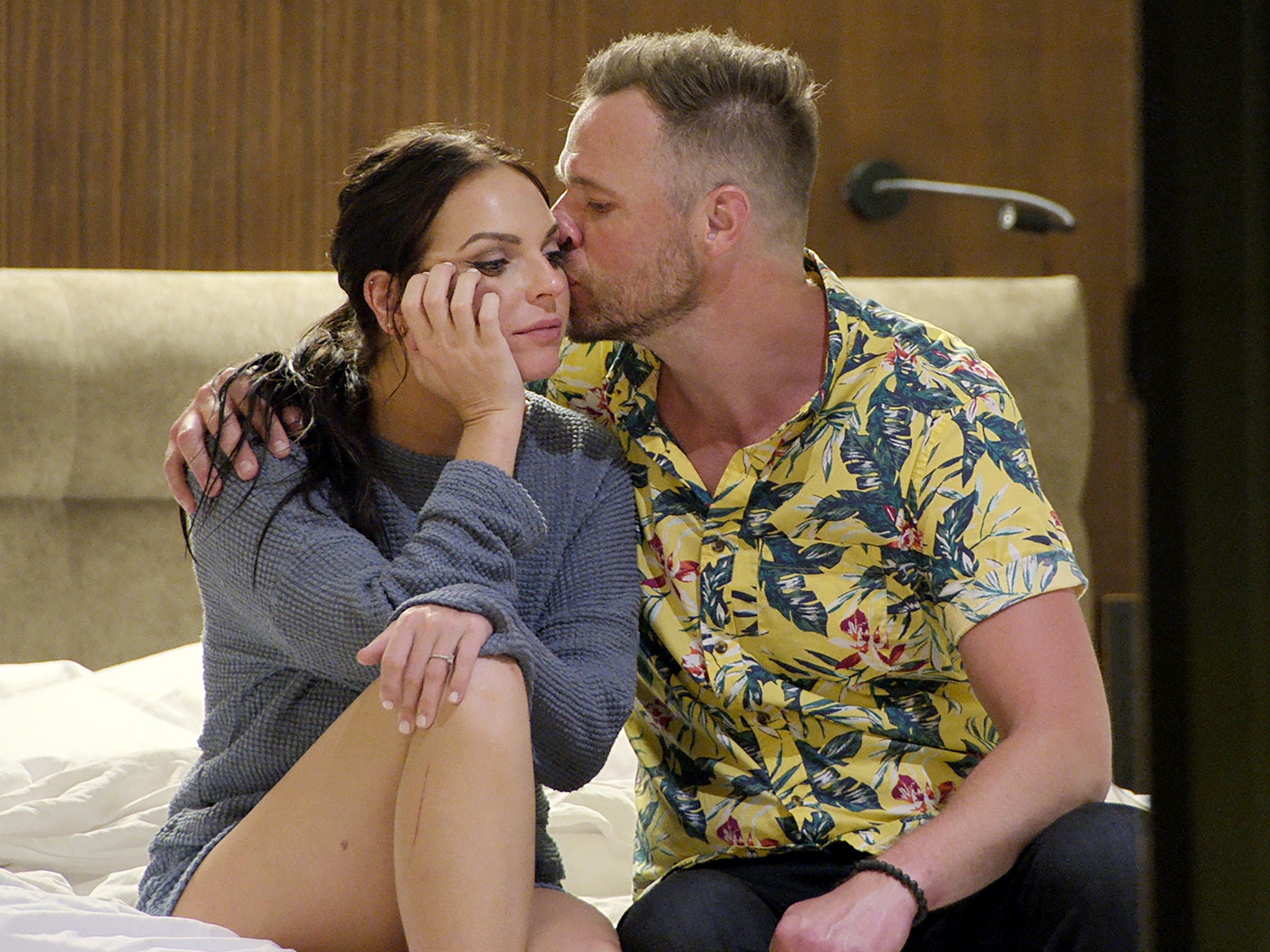Love is Blind is full of red flags – and that’s a good thing
I think back to being in my teenage relationship and wonder whether seeing it reflected back to me on TV would’ve helped me extricate myself earlier


This weekend, I did what I assume most people did and hunkered down under several layers of duvet and blanket to avoid the storm. I say avoid the storm, it’s likely this is what I would have been doing on a weekend anyway.
Like many others also, I dipped a toe into the new series of Netflix’s reality TV dating show Love Is Blind. If you’re unfamiliar with the premise, groups of straight men and women move into a house and are invited to talk to each other, to form connections in a series of “pods”. The twist is, they are only allowed to talk and they’re unable to see each other face-to-face until they think they’ve found “the one” and they get engaged. The show then follows them through meeting each other, moving into apartments and preparing for a wedding where they decide if love really is blind.
It’s a strong original format and like much reality TV, is good chewing gum for the brain. You can sit back and be at about 40 per cent concentration capacity, which is a level I like to keep things at in general, and still be entertained. But there’s also an educational side to the shows, which is something I hadn’t really appreciated until watching this weekend.
Apologies if this is a spoiler for anyone, but there’s a couple in the show who (at time of writing) leave me feeling uneasy. Nick and Danielle, a couple who at first appear like they’ve got it all together, are arguing in one of the later episodes. In fact, they argued on the honeymoon-style trip the couples take to Mexico after being released from the pods. But in this later argument, Nick turns to Danielle, who has been venting about her insecurities after Nick was distracted when meeting her family, and says nastily: “Did you ever think the world doesn’t revolve around, like, you?” It was a real jarring moment, and I messaged a friend who I knew was also watching and she agreed that she’d found it uncomfortable.
We both agreed it was a “red flag”, a term that’s picked up in popularity when discussing dating and relationships on social media. A “red flag” highlights that something isn’t quite right with somebody, and it’s a good shorthand for describing a behaviour that isn’t in your face abuse, but also isn’t what you want to be seeing.
When I was a teenager, I was in a relationship that possibly now I would describe as borderline abusive. There was lying, gaslighting, cheating, anger – a lot of things that you simply do not want in a relationship. There were a lot of “red flags”, but at that age, I didn’t have the knowledge or words to put the pieces together. Sex and relationships education was severely lacking, with the focus mainly being on not getting pregnant and not getting STDs (and ideally not having sex at all).
I know that for many, the current trend of reality dating shows – like Love Is Blind and the UK’s Love Island – are something to turn your nose up to. There’s a slight grubbiness to being someone who watches and enjoys them. But I’m also finding that they are of use to us and younger people as blueprints for how not to be in relationships.
To keep up to speed with all the latest opinions and comment, sign up to our free weekly Voices Dispatches newsletter by clicking here
In last year’s Love Island, the charity Women’s Aid put out a statement about perceived gaslighting from Danny towards Lucinda. These shows have huge conversations around them on social media, with people dissecting the behaviours seen on the show. In 2018 Women’s Aid put out another statement about a contestant Adam’s behaviour towards fellow contestant Rosie. The charity said the actions were warning signs of emotional abuse.
While I’m not here to argue about whether the creation and broadcasting of these types of shows is a good idea – Love Island in particular is bleakly overshadowed by a number of suicides, including former contestants and its former presenter Caroline Flack – I do think that bringing these relationship issues to the forefront is good and educational.
I think back to being in my teenage relationship and wonder whether seeing it reflected back to me on TV and being able to be part of those social media conversations that dissect the red flags and signs of foul play would’ve meant I could extricate myself earlier. As well as conversations on Twitter sparked by dating shows, TikTok has become a great resource for talking about relationships and highlighting red flags for those who may not be able to see them for themselves.
Reality TV dating shows may not be for everyone and they may not be the height of sophistication, but for young people they could be providing education around relationships that they’re not being offered elsewhere.
Join our commenting forum
Join thought-provoking conversations, follow other Independent readers and see their replies
Comments
Bookmark popover
Removed from bookmarks